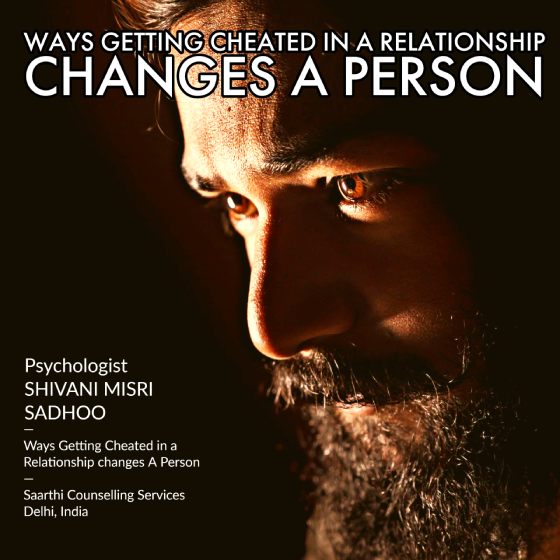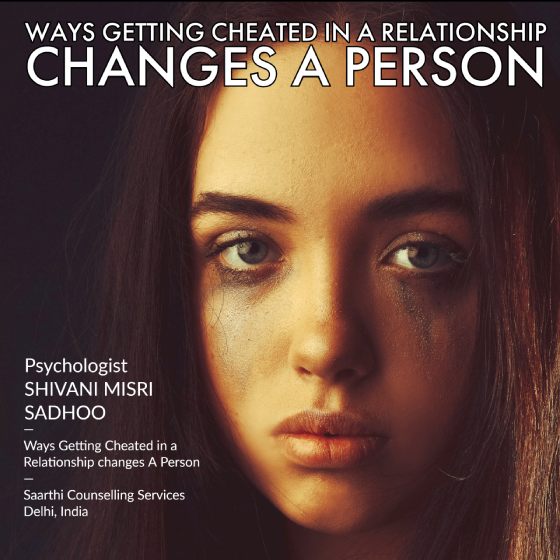When you have been cheated on by your partner, you surely feel broken, lost and so many other emotions including humiliation. Cheating also transforms us as a person and it generally, is a permanent change. Have you been cheated on? Read this to confirm if these changes were experienced by you too as shared by Delhi’s leading marriage counselor Shivani Misri Sadhoo.
Relationship expert Shivani Sadhoo says getting cheated in a relationship could have a profound impact on a person’s emotional, psychological, and behavioral well-being. Here are certain common ways that being cheated on can change a person:
Loss of Trust:
Infidelity shatters the base of trust in a relationship. It can make a person skeptical and suspicious, not just in future relationships but also in their overall interactions with people. They may find it difficult to trust others, including close friends and family members.
Emotional Distress:
Discovering that your spouse has cheated on you can cause intense emotional pain, leading to feelings of betrayal, anger, sadness, and humiliation. This emotional distress may persist for a long time, even after the relationship has ended. It can also trigger anxiety and depression, impacting a person’s mental health.
Self-Esteem and Self-Worth:
Being cheated on can profoundly hit an individual’s self-esteem and self-worth. They may question their attractiveness, worthiness, and their ability to maintain a healthy relationship. This can lead to feelings of inadequacy and self-doubt, which may affect their future relationships and overall self-confidence.
Relationship Problems:
People who have been cheated on mostly find it challenging to form new romantic relationships. They may struggle with intimacy and fear being hurt again. It can be challenging to fully open up and trust a new partner, leading to difficulties in building a deep emotional connection.
Insecurity and Jealousy:
The experience of being cheated on could make a person overly vigilant and possessive in future relationships. They may become excessively jealous, constantly seeking reassurance and validation from their partner. This insecurity can strain relationships and create a cycle of suspicion and doubt.
Fear of Abandonment:
Infidelity may instill a fear of being abandoned in a person. They might worry that they are not enough for their partner, leading to clingy behavior or a constant need for reassurance. This fear can hinder the development of a healthy and balanced relationship.
Problems in Forgiving:
Healing from infidelity mostly involves forgiveness, but it could be a challenging and lengthy process. Some persons might find it difficult to forgive their partner or even themselves. Lingering resentment and bitterness can hinder personal growth and prevent the person from moving forward.
Alterations in Behavior:
Being cheated on can lead to changes in behavior and coping mechanisms. Some individuals may become more guarded, emotionally distant, or reluctant to commit to future relationships. On the other hand, some may become overly vigilant, snooping through their partner’s belongings or invading their privacy due to a fear of being deceived again.
It is essential to note that while being cheated might have significant impacts, not everyone will experience these changes in the same manner. Each person’s response to infidelity is unique, and healing and recovery processes differ from person to person. Seeking support from friends, family, or professional counselors can be beneficial in navigating the aftermath of infidelity and redeveloping trust.







